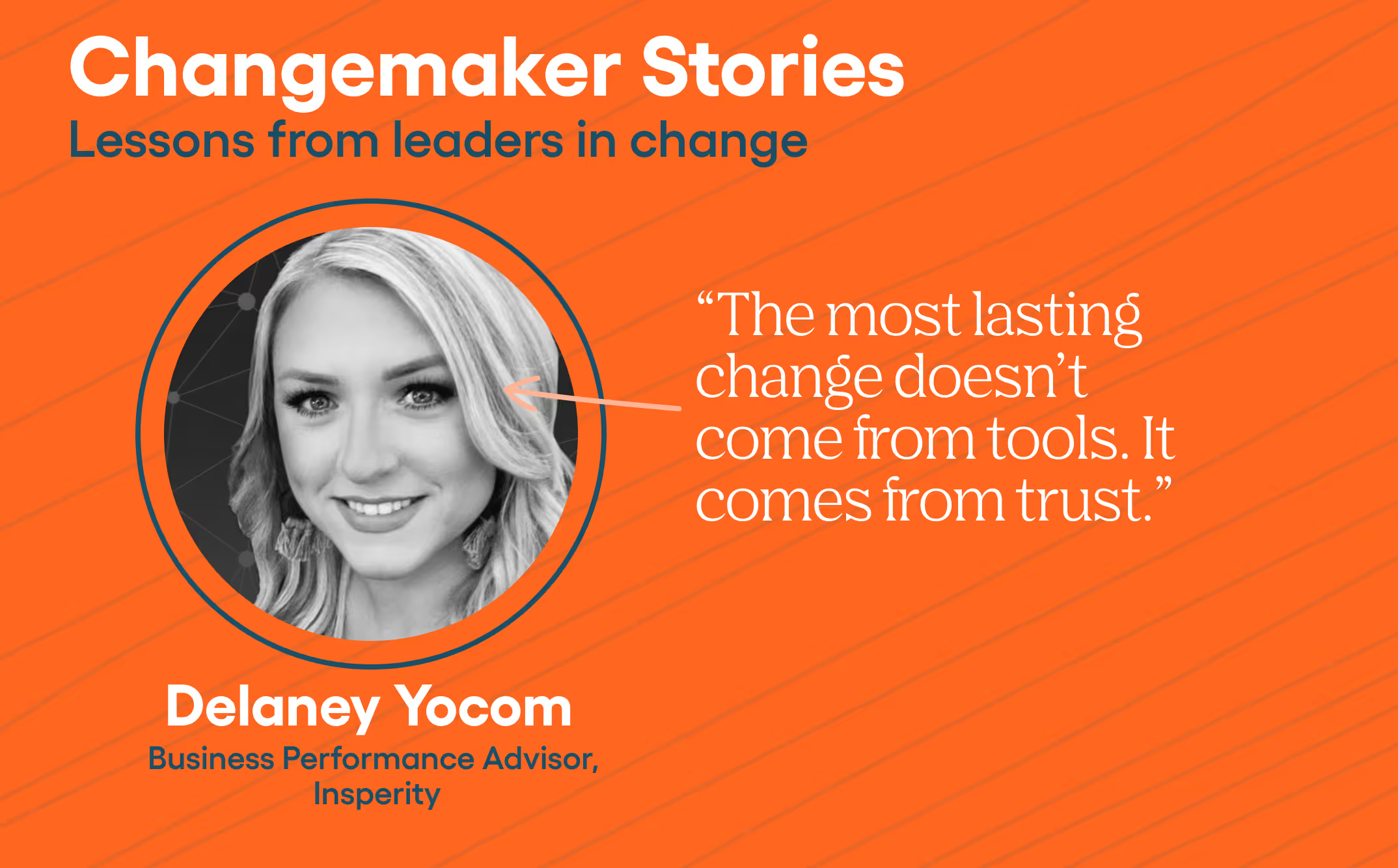

Welcome to Changemaker Stories from LOCAL – an ongoing series of personal interviews with leaders driving change across every industry and discipline. Because change shouldn’t mean going it alone.
When I left hospitality leadership in the wake of COVID, I wasn’t just looking for a new job—I was looking for a new way to make an impact. I found that path through community work, nonprofit service, and now, my role at Insperity. Across all those chapters, one thing has stayed true: when you support people well at work, it changes everything.
Workplace behavior is never just about work. So many of the challenges we see—conflict, burnout, disengagement—aren’t because someone suddenly turned into a “bad employee.” They’re shaped by life: trauma, caregiving, mental health, survival. I’ve seen that firsthand, working with domestic violence survivors and families in crisis. People bring all of that with them when they clock in. If employers ignore that, they miss the fundamental levers for performance and connection.
Small businesses are often the heartbeat of a community, but they don’t always have the tools to lead well. That’s where I come in. My job is to help smaller companies access big-company resources—not just to check boxes, but to help them become the kind of employer people want to stay with. When small business leaders are empowered with structure, clarity, and support, they don’t just grow a business. They transform lives.
Change starts with people, not processes. You can introduce the most elegant software in the world—but if your people don’t understand it, don’t trust it, or don’t feel supported in using it, it’s just a shiny widget. I’ve learned to meet every change initiative with curiosity. Ask: Who's affected? What do they need to feel safe enough to try something new? And how do we make sure we’re not just fixing a process, but making someone’s day a little easier?
Leadership isn’t about authority—it’s about accountability and care. Too often, people get promoted because they were great at their job, not because they were ready to lead. Then we leave them to figure it out alone. That’s not fair. We need to equip leaders with the right structures, tools, and human support. Leadership is hard. It asks you to care more about your team’s growth than your own recognition—and to keep showing up even when it’s messy.
Culture is not the soft stuff. It’s the operating system. A healthy culture creates clarity, safety, and direction. Without it, even small changes feel like threats. With it, people make better decisions because they’re aligned with the mission, they feel seen, and they know where the organization is headed. I always ask: Can your employees name your values? Do they know what success looks like? If not, start there.
Compassion doesn’t cancel accountability. The most powerful thing a company can do is offer both: empathy and standards. Support and expectations. Dignity and direction. When people feel both held and challenged, they rise.
I’ve seen the same truth repeat itself in crisis shelters, hospitals, nonprofits, and now small businesses. In every setting, the most lasting change doesn’t come from tools. It comes from trust. That’s what I try to build every day—with my clients, my team, and myself.